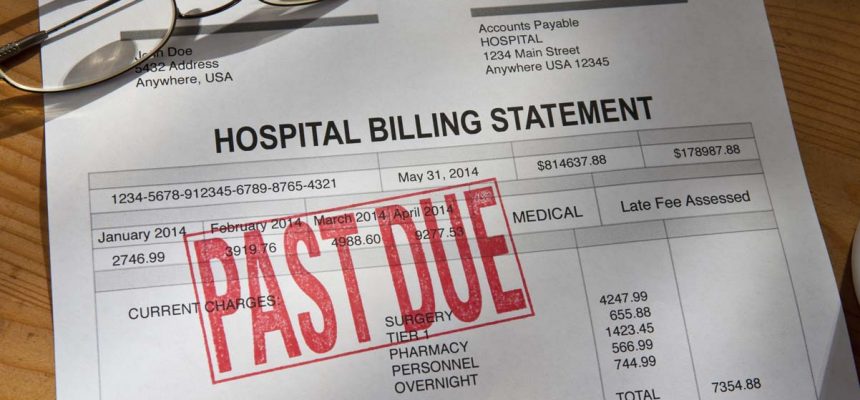Fear Of Surprise Bills Leaves Mom Sitting In ER Parking Lot
By Consumers For Quality Care, on May 15, 2019

Two years ago, Lindsay Clark’s 2-year-old daughter, Lily, got into a bottle of Dramamine despite the child-lock. Clark says she swept her finger through Lily’s mouth, but she wasn’t sure how many pills she had already eaten. Trying to determine what to do next, Clark called poison control, Sarah Kliff write for Vox.
Clark had to decide: Should she take Lily to the emergency room?
The poison control hotline told her she should. A Dramamine overdose can result in seizures. At the emergency room, Lily would be monitored and doctors would potentially give her activated charcoal or pump her stomach.
Clark weighed her options. After a fall down a flight of stairs resulted in a $1,200 bill that she had yet to pay, Clark knew how expensive emergency care could be. She and her husband decided to give Lily some activated charcoal at home and drive to the ER. But, they decided, they wouldn’t go inside.
“She could have a seizure at any moment. It felt terrible, as a parent, to be in the position of having to do that.”
At the hospital, Clark and her husband pulled their car into the second row of the parking lot. Clark says they chose their spot so that if Lily showed any symptoms, they could rush inside. In the car, they put on a movie for Lily to watch and they watched their daughter. After a few hours of waiting and Lily showing no symptoms, they drove home.
“I was sitting there thinking, am I a bad person?” Clark says. “I’m weighing my daughter’s life against how much the bill is going to cost.”
This fear and frustration is understandable when surprise bills can lead to home-liens and crippling debt. Research from Consumers for Quality Care found that 91 percent of respondents are concerned about receiving surprise bills from hospitals and 88 percent of respondents believe lowering out-of-pocket health care costs should be a top priority for lawmakers.
[Clark’s] story captures how sky-high medical bills shape patients’ lives. Not only do the bills put patients in overwhelming debt, but they also affect the health care decisions patients make.
Kliff says she heard from other parents, too, who have waited in ER parking lots and on curbs in fear of what it would cost to step inside the hospital. Many were not sure what their care would cost, even when they had insurance.
And that leads families like the Clarks to make the decision not to seek medical care, even when a poison control hotline is urging them to do so.




